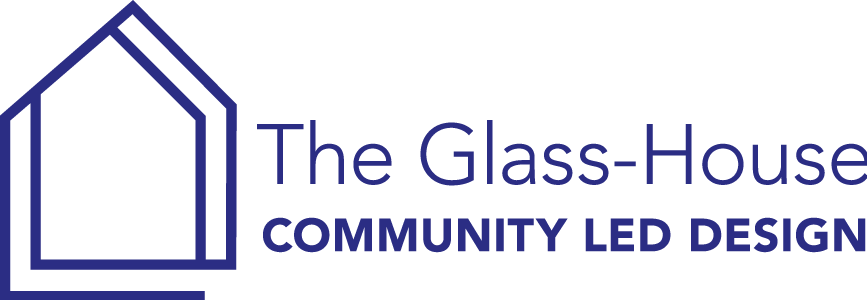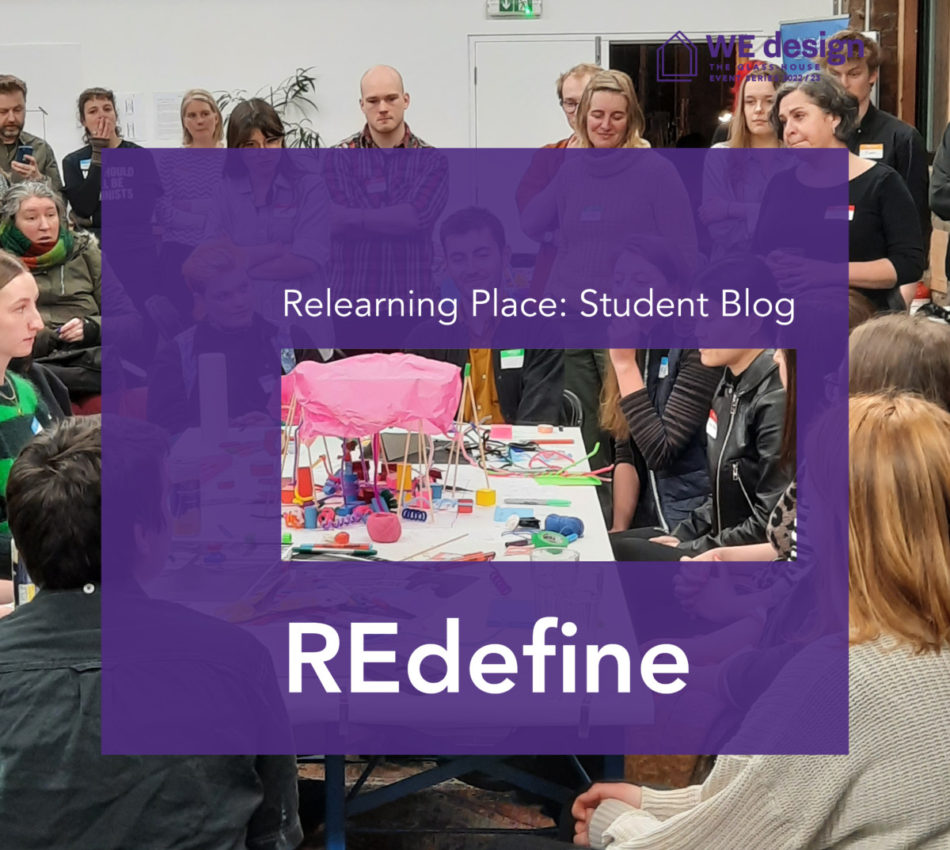Written by:
Relearning Place: Student Blogs are a series of online blogs by our WEdesign students, giving a taste of their experience of planning and facilitating the live event. We have invited student participants from each of our partner universities to write a short blog about taking part in WEdesign from their perspective. In this edition Abby Hopes from Mackintosh School of Architecture offers her personal reflections on working with The Glass-House and her peers to co-design and deliver the REdefine event in Glasgow back in March.
Abby Hopes from Mackintosh School of Architecture, Glasgow School of Art.
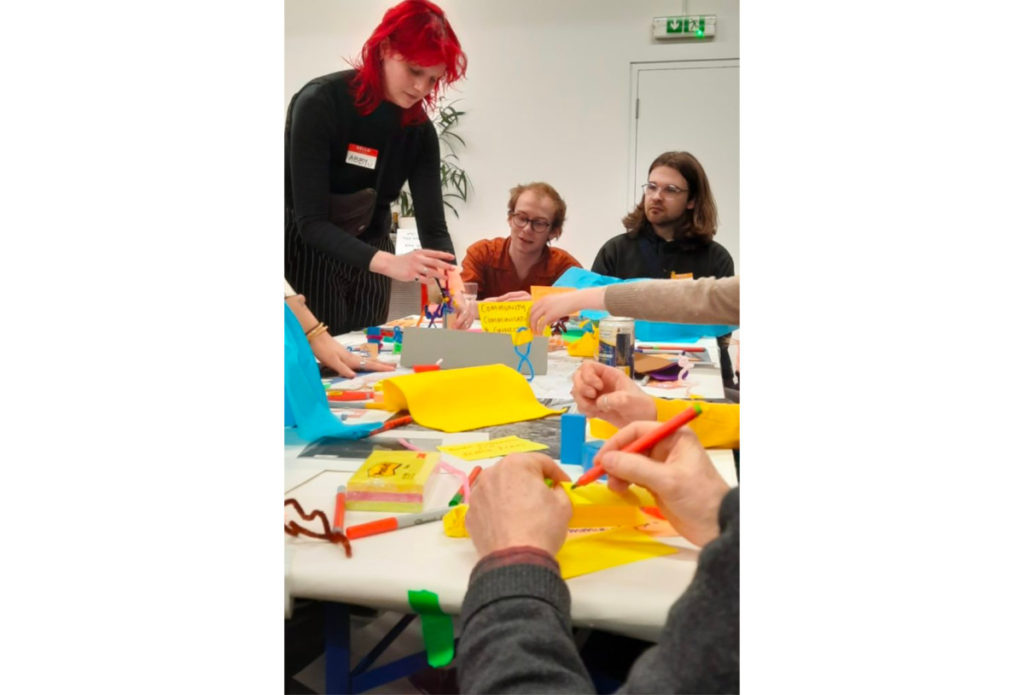
As a group of students and staff from the Mackintosh School of Architecture, we were keen to get together and work with The Glass-House as an opportunity to expand feminist design conversations that we were having in our studies, outside of our university’s walls. I was personally motivated to get involved as I am passionate about co-design but didn’t know where/how to start. In ‘traditional’ architectural education it is very rare that we get to work closely with communities through co-design: so far I hadn’t had an opportunity to get involved in conversations about inclusive, people-centred design with many people outside of my university. Working with The Glass-House was an opportunity to expand my interests by learning new facilitation skills to equip me for my future practice, which I am so grateful for.
As a group we met for a few planning sessions before our REdefine event, in which we explored our local areas of Glasgow, taking photographs as we went which highlighted feminist issues we discovered to use as conversation starters at our event. Considering our own and others experiences of barriers to public transportation, pavement accessibility, among other issues grounded us in reality, whilst inspiring some blue sky thinking about the possibilities of a more feminist future for the re-design of Glasgow’s urban realm.
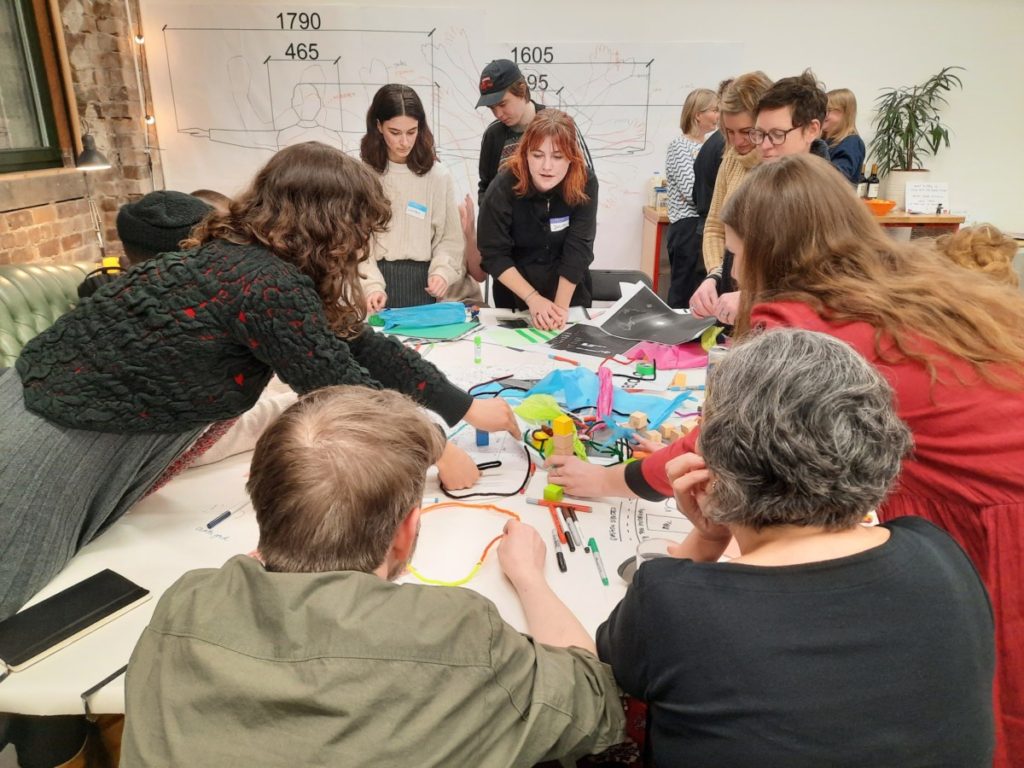
During the REdefine event itself, the students paired up and split into 4 tables which participants could choose between to join in the conversation based around the feminist city themes of ‘education’, ‘practice’, ‘ecology’, and my group, ‘community’. Although this theme was quite broad, I worked with my friend Nirali to provoke the group (made up of architecture students and staff; council and community workers; and members of the public) into thinking about their own experiences of ‘community’, asking what it means to them. We had a really productive and fulfilling conversation, scribbling down notes and ideas as we talked. The group conversation mainly surrounded the importance of public access and inclusion, connection and support for these groups, who are continually under strain in their survival/vitality. We were also beginning to think of strategies the city of Glasgow could apply to encourage and make everyone feel involved in local community groups, as we believe many face barriers to inclusion at present.
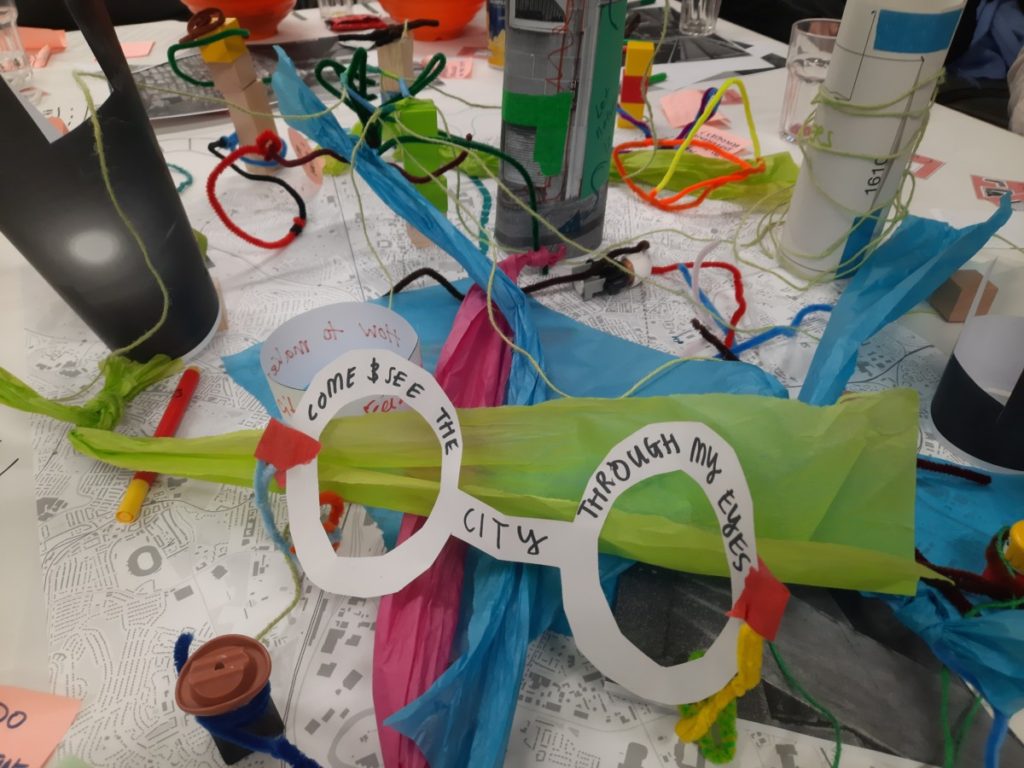
The best part for me was the co-design activity, where we were tasked with making a 3D model/sculpture which represented our conversation. Our “Community: Communication and Connection” proposal for a community groups fair based in Glasgow’s George Square, although this model could be applied in any city. We proposed this as a way-finding exercise to raise awareness of community groups around Glasgow, a place to connect them to each other. It was great to have a round up at the end to learn about the ideas from the other tables – I wish I’d been able to take part in all 4 conversations!
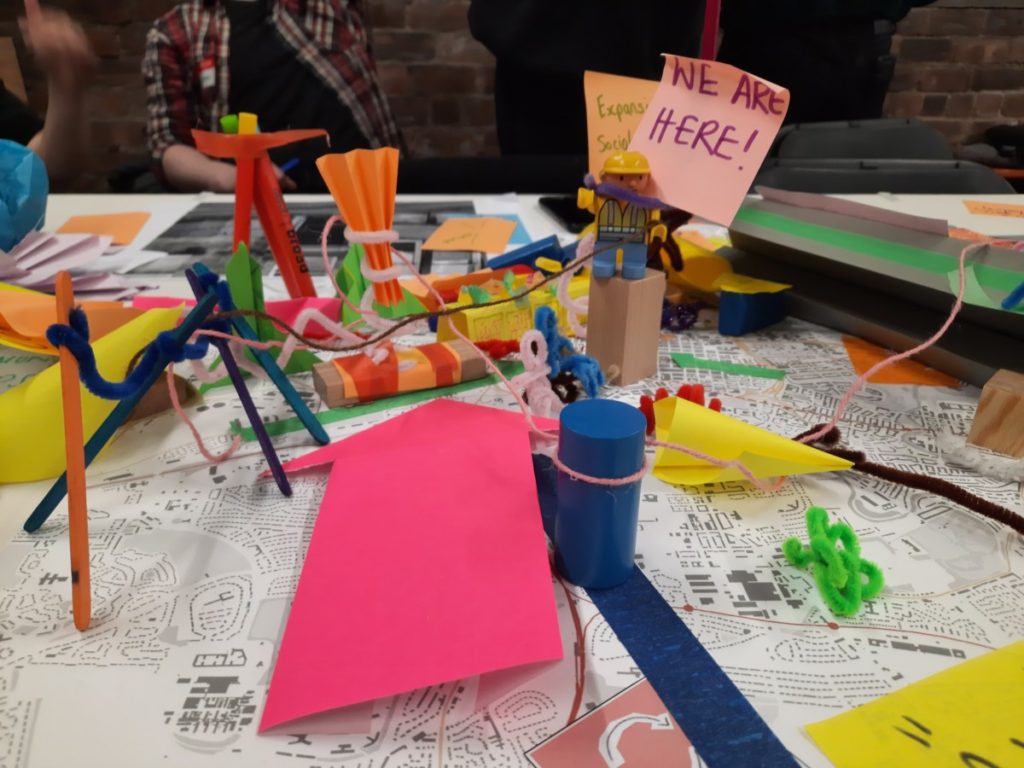
I was initially a little apprehensive about leading a co-design activity as I have physical and vocal tics which are heightened in busy/over-stimulating environments, and can make it difficult/painful for me to communicate. I am grateful for how accommodating The Glass-House team and participants were for my needs and I was left feeling confident and able to participate freely. My accessibility requirements are a reminder of the many feminist issues we should all consider in co-design – it is vital that we work hard to make sure all voices are included and heard.
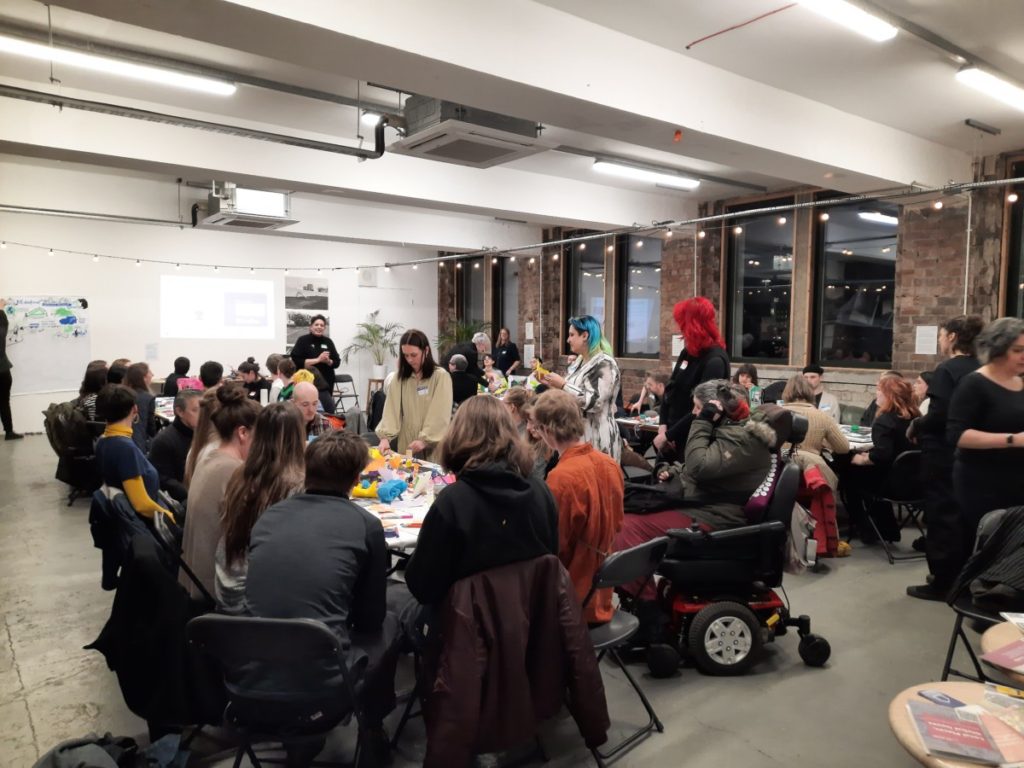
I left the event feeling empowered, and hopeful that a feminist future is possible for Glasgow if we work together and share our appetite for change with others. Overall it was a really invaluable experience to work collaboratively with staff and practitioners in a non-hierarchical manner – which is quite rare for the student experience! I felt like our ideas were heard and taken seriously which is refreshing – as students we have gained skills that will stay with us and prepare us for the future as design practitioners, in order to more ethically include users in the design of their places and spaces.
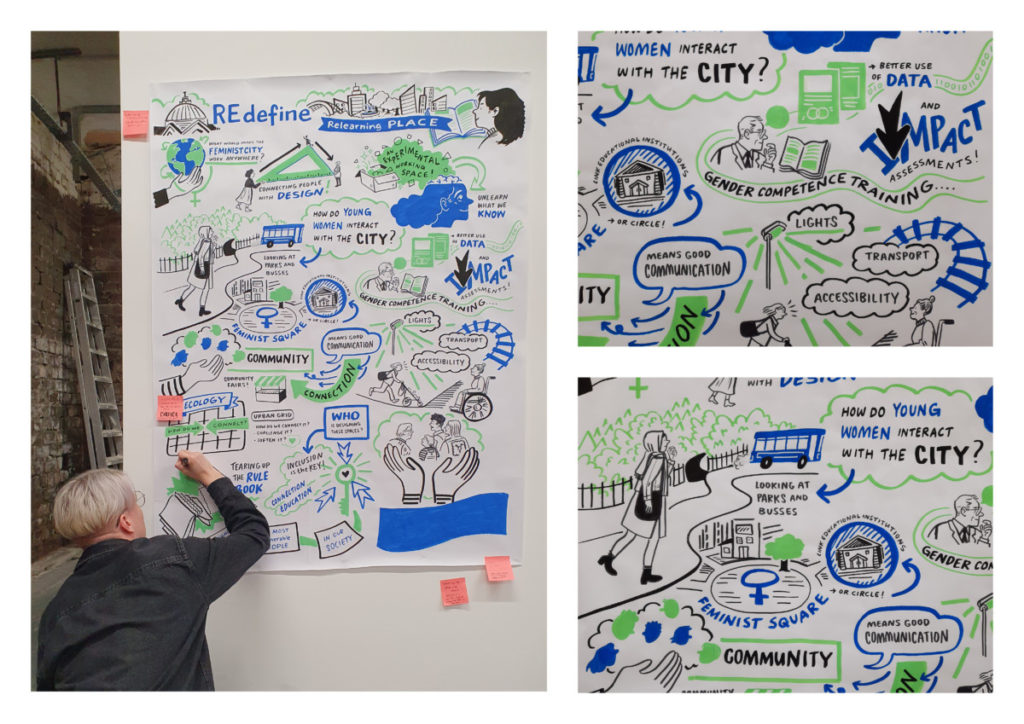
As a student and staff partnership team at MSA, we are keen to take our REdefine experience forward this summer by sharing our conversations from the REdefine event further with other audiences, and using our newly gained facilitation skills in a few projects in the pipeline this summer. All of our energy and enthusiasm will hopefully translate into making Glasgow our feminist city in reality!

About the WEdesign 2022/23 Series: Relearning Place
Relearning Place is The Glass-House’s 2022/23 WEdesign series which combined free, interactive events and co-design activities in person in Glasgow, Sheffield, London and Newcastle, with a range of online events and think pieces. This year’s series finished in March 2023.
WEdesign is kindly supported by the Ove Arup Foundation.
